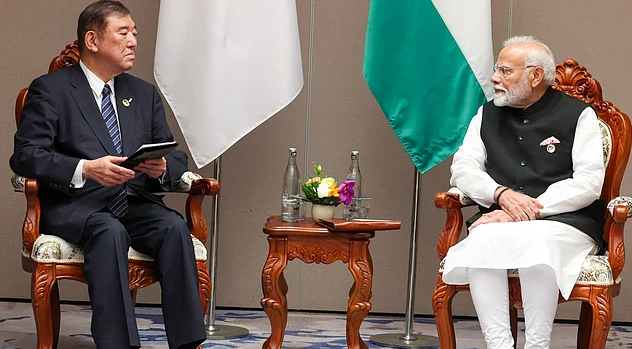

In a bold move to tighten control over critical minerals and challenge China's dominance, India has directed IREL to suspend a 13 year old rare earth export agreement with Japan, Reuters reports. The directive, issued by the Indian government to state-run miner IREL (India) Ltd., marks a turning point in New Delhi's strategy to secure its domestic supply chain for high-tech and clean energy sectors.

According to sources familiar with the matter, Commerce and Industry Minister Piyush Goyal recently instructed IREL to stop exporting rare earth elements particularly neodymium, vital material used in powerful magnets for electric vehicle (EV) motors. The minister's remarks came during a meeting with leading executives from India's auto and manufacturing sectors, where the focus was squarely on reducing foreign dependency and strengthening local capabilities.
Since 2012, IREL has been supplying rare earths to Toyotsu Rare Earths India, a subsidiary of Japan's Toyota Tsusho. The processed materials were then shipped to Japan for use in industrial magnets. In 2024 alone, Toyotsu received over 1,000 metric tonnes, roughly a third of IREL's total output of 2,900 tonnes, highlighting the significance of this now-paused trade link.
Historically, India exported rare earths due to limited domestic refining infrastructure. But with China's tightening grip on global rare earth exports and rising geopolitical tensions, India is pivoting to become not just a supplier of raw materials but a major player in rare earth processing and value addition.
IREL is already laying the groundwork, awaiting approvals for four new mines as part of its ambitious expansion plan. This aligns with India's broader industrial strategy: reducing reliance on Chinese supply chains while bolstering sectors like electric mobility, defence, and electronics manufacturing.
However, the transition may not be immediate. The existing India-Japan supply arrangement is based on a binding bilateral agreement, and unwinding it could require diplomatic negotiation. Nevertheless, the message is clear: India is preparing to prioritise its own strategic industries.
Meanwhile, the global rare earth chessboard remains volatile. In a tit-for-tat with the U.S., China recently imposed export restrictions on seven rare earth elements and associated magnets, further tightening the already-dominant grip it currently controls about 90 per cent of the global rare earth refining capacity.
Even as former US President Donald Trump claimed that a new trade deal with China would resume the flow of critical materials to the U.S., countries like India and Japan are scrambling to diversify their sources. With this latest move, India is signalling its intent to shift from an exporter to a self-reliant powerhouse one magnet at a time.
Image Source: PMO / Outlook Business
Responses








